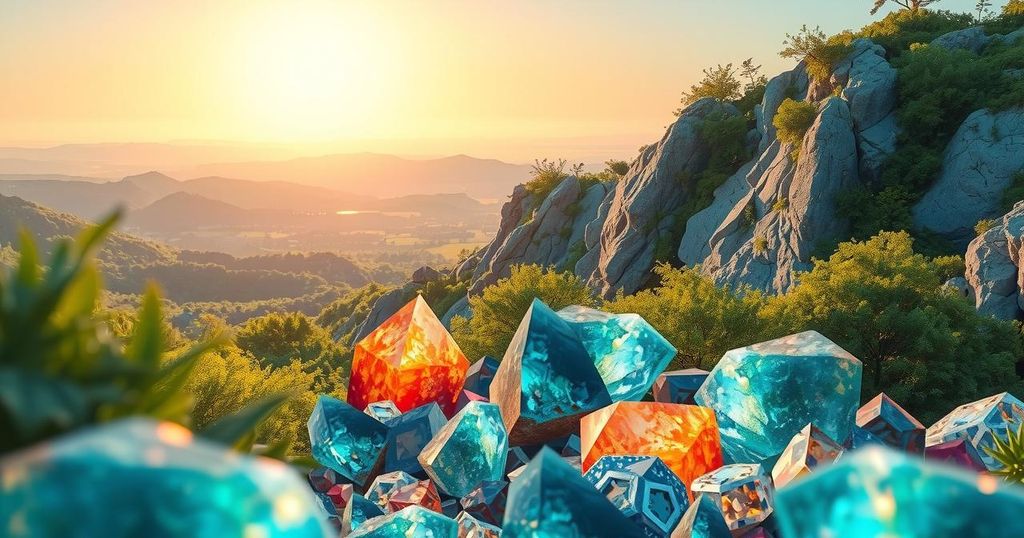President Tshisekedi of the DRC has proposed that the US and Europe access the country’s mineral resources in exchange for intervention to end ongoing conflicts. The proposal comes as the US imposes sanctions related to the conflict. Currently, China has better access to the DRC’s minerals, while discussions with Rwanda continue amid allegations of mineral exploitation.
In a significant diplomatic initiative, President Felix Tshisekedi of the Democratic Republic of Congo (DRC) has proposed that the United States and Europe gain access to the nation’s extensive mineral resources in exchange for intervention to resolve the prevailing conflict. On Sunday, Presidential Spokesperson Tina Salama urged the US to purchase crucial minerals directly from Kinshasa instead of acquiring “looted” and “smuggled” resources through Rwanda, asserting that the DRC is the legitimate owner of these assets.
During an interview with The New York Times, President Tshisekedi indicated that a potential minerals deal could foster greater security and stability within the country. He noted past interest from the Trump administration in securing direct supplies of strategic minerals from the DRC. This proposition was made shortly after the US imposed sanctions on James Kabarebe, a Rwandan military officer linked to the M23 rebel group that has disrupted peace in eastern DRC.
Currently, China has a stronger foothold in accessing Congo’s mineral wealth, while the European Union has engaged in negotiations with Rwanda. Notably, the EU agreed to provide Rwanda with approximately $935 million in exchange for various minerals last year. However, during a recent meeting, EU foreign ministers failed to reach an agreement on imposing immediate sanctions against Rwanda for its alleged role in the conflict, although a potential review of raw materials agreements was indicated by EU officials.
Reports from the United Nations have highlighted accusations against Rwanda for exploiting the unrest in DRC by illicitly acquiring Congolese minerals, including gold, copper, cobalt, and coltan. The M23 rebel group has reportedly captured several lucrative mining areas, leading to significant smuggling of coltan into Rwanda. Despite these allegations, Rwanda has persistently denied any involvement in mineral exploitation.
The DRC stands as the world’s largest producer of cobalt, having mined 220,000 metric tons last year. In addition, it supplies nearly 70% of global tantalum, primarily extracted from cobalt. The eastern region of the DRC houses substantial deposits of tin and tungsten, as well as extensive coltan reserves, which have been associated with severe environmental harm, human rights violations, and hazardous working conditions, including child labor.
In conclusion, President Tshisekedi’s proposal to the US and Europe reflects a strategic effort to leverage the DRC’s mineral resources for peace while calling out the ongoing exploitation linked to conflict. This engagement emphasizes not only the DRC’s position as a mineral-rich nation but also the moral imperatives surrounding the trade and sourcing of these critical resources. The situation remains complex, with international dynamics and historical relationships influencing the outcome.
Original Source: www.mining.com






